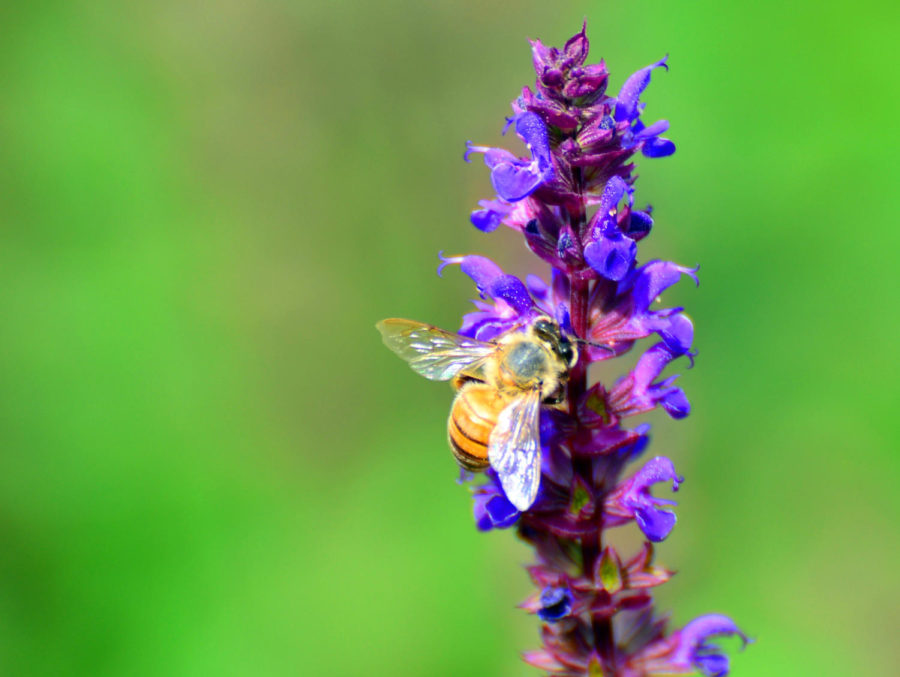Iowa State sophomore advocates for bees as America’s honey queen
Photo: Jen Hao Wong/Iowa State Daily
The bees are actualy experiencing a “beepocalypse,” in which a severe colonial collapse of the global honeybee population. This phenomena has hurt much to United States economy because 80 percent of the flowered crops are pollinated by the bees.
September 11, 2017
With the use of a queen bee to entice the other bees, Maia Jaycox tries to stay calm as the black and yellow creatures crawl onto her face, creating a beard that buzzes.
While most fear bees and their stingers, Jaycox, and the American Beekeeping Federation (ABF) who crowned her this year’s honey queen, want to show people if they remain calm, bees are harmless.
Though she did want to say, “don’t try this at home.”
“I was a little nervous to start with, but once we started getting going and the bees were moving I was like ok, I can calm down, I can breath,” Jaycox said. “It was a little weird having the bees walk all over my face, but it was just an amazing experience.”
Jaycox is an Iowa State sophomore and a member of Kappa Alpha Theta. She took the semester off to travel around the country talking about beekeeping.
Jaycox was first thrown into the world of bees when her mom took up beekeeping—only to discover that she was allergic. Jaycox and her dad took over caring for the bees.
Aspiring honey queens applying for the position are tested on their communication skills as well as their beekeeping knowledge.
Jaycox first got involved with the program after she started volunteering at the Iowa State Fair.
On the American Beekeeping Federation’s website, it describes the honey queen’s position as the entire beekeeping industry’s salesman or public representative.
“The Queen and Princess educate the public with facts on the beekeeping and honey industry concerning pollination of our nation’s crops and how dependent we are on the honeybee for agriculture, how honey is a healthy substitute for sugar and how honey also extends the shelf life of baked products and adds that extra special something, such as taste or texture to other products,” the ABF’s website states.
Jaycox said they encourage people to do their part to help the bee population. She said, if people do not have the resources to keep bees themselves, they should support local beekeepers by buying their honey.
“Plant as many bee-friendly flowers as possible because they need a healthy habitat to forage on,” Jaycox said.
Not having enough healthy habitats is one of a multitude of reasons that Jaycox gave for a declining bee population.
Jaycox also warns people not to go into beekeeping blind. When she started beekeeping, on top of the knowledge her dad had, she received support from mentors of the Iowa Honeybee Association.
Since starting her tour in January, Jaycox has been to 13 different states, including Iowa.
“It’s just amazing being able to travel to different places and tell them about how they can help honeybees,” Jaycox said.
She has done school presentations ranging from elementary school to the collegiate level. She also has made appearances at fairs and farmer’s markets as well.
As she travels, Jaycox has been picking up new beekeeping techniques and tricks. She said every state has their own way of beekeeping, so this has been a learning experience for her as well.
The American Honey Queen Program has been crowning young beekeepers since 1959. Jaycox is one of three Iowan honey queens.







